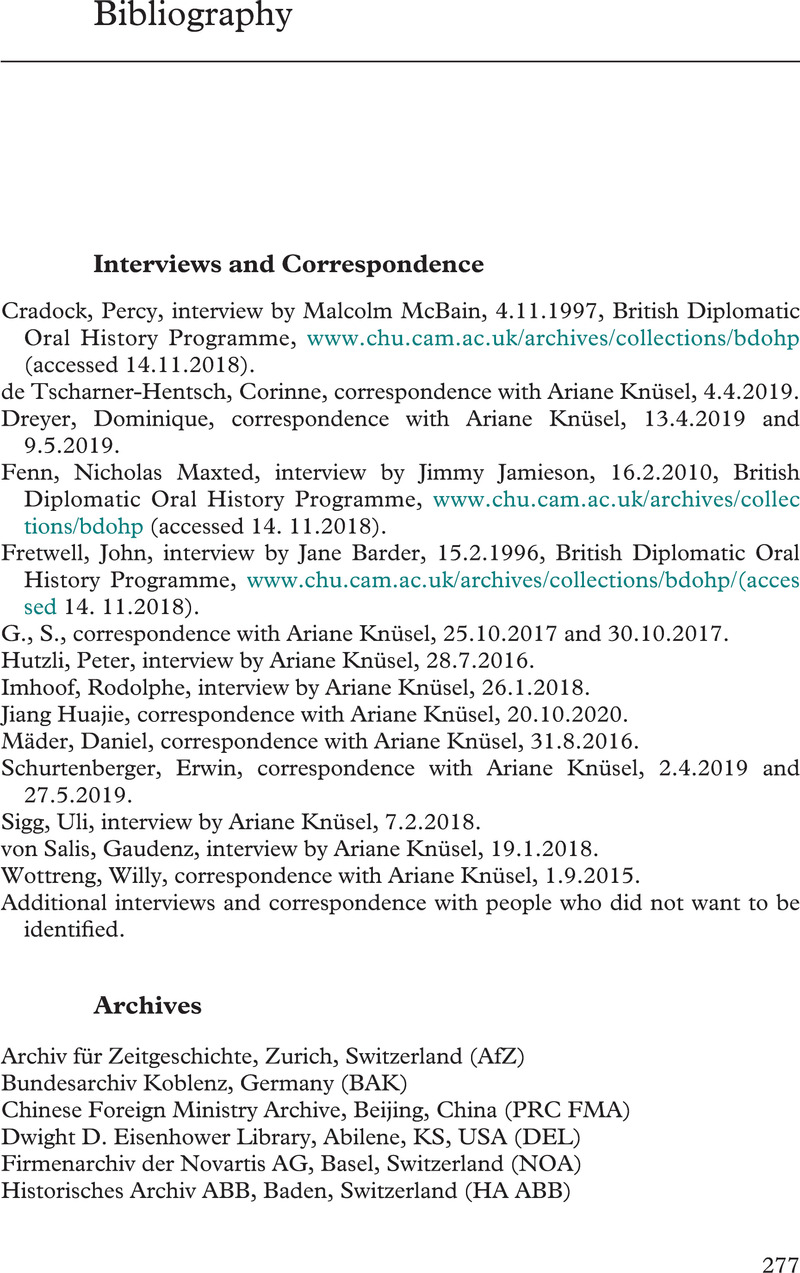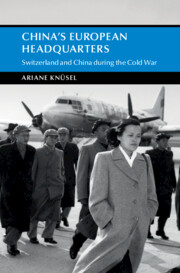Book contents
- China’s European Headquarters
- Cambridge Studies in the History of the People’s Republic of China
- China’s European Headquarters
- Copyright page
- Dedication
- Contents
- Figures
- Acknowledgements
- Note on the Text
- Abbreviations
- Introduction
- 1 Creating a European Hub
- 2 Becoming a Global Hub
- 3 ‘A Sick Man Shaken by Fits of Madness’
- 4 Dr No in Switzerland
- 5 Conclusion
- Bibliography
- Index
- References
Bibliography
Published online by Cambridge University Press: 21 April 2022
- China’s European Headquarters
- Cambridge Studies in the History of the People’s Republic of China
- China’s European Headquarters
- Copyright page
- Dedication
- Contents
- Figures
- Acknowledgements
- Note on the Text
- Abbreviations
- Introduction
- 1 Creating a European Hub
- 2 Becoming a Global Hub
- 3 ‘A Sick Man Shaken by Fits of Madness’
- 4 Dr No in Switzerland
- 5 Conclusion
- Bibliography
- Index
- References
Summary

- Type
- Chapter
- Information
- China's European HeadquartersSwitzerland and China during the Cold War, pp. 277 - 301Publisher: Cambridge University PressPrint publication year: 2022

